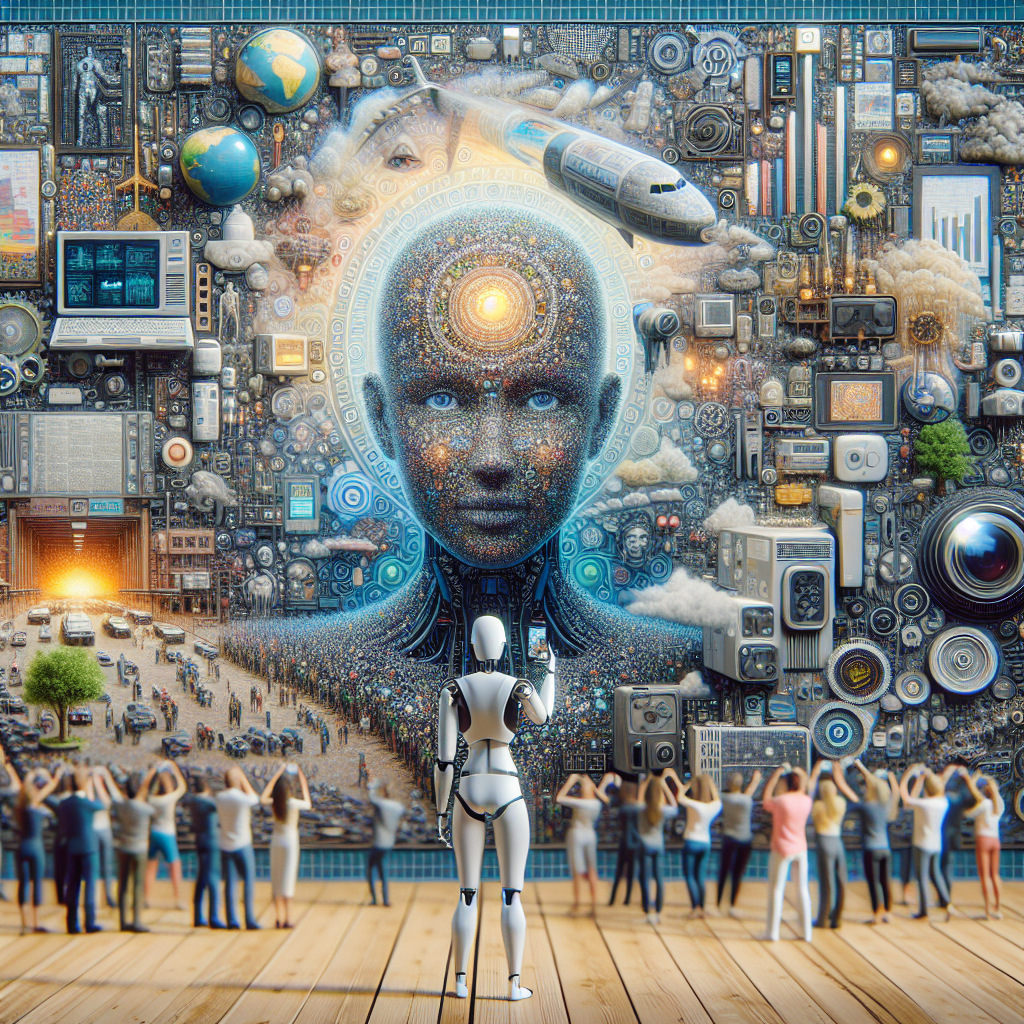Introduction
In a world increasingly shaped by technological advancements, artificial intelligence (AI) stands at the forefront of innovation. From enhancing our daily tasks to revolutionizing entire industries, AI appears to be both a boon and a potential bane. The question on many minds is: Can AI truly take over the world? As we explore this intriguing possibility, let us delve into what AI can do, its tangible impact, and the boundaries that define its influence.
Table of Contents
- The Evolution of AI: A Brief Overview
- AI in Various Industries
- The Ethical Dilemmas of AI
- Human vs. Machine: The Power Struggle
- Key Takeaways
- Frequently Asked Questions
- Conclusion
The Evolution of AI: A Brief Overview
The journey of AI began with simple algorithms designed to perform repetitive tasks. Today, it has blossomed into a sophisticated entity capable of mimicking human thought processes. But how did we get here? Imagine a winding road with twists and turns, each representing pivotal moments—like the creation of neural networks that allowed machines to learn from data.
In recent years, AI has grown exponentially, influencing areas from healthcare to finance. Its evolution is akin to a snowball rolling down a hill, gathering mass and speed. To understand if AI can take over the world, it’s essential first to grasp the scope of its development and applications.
AI in Various Industries
AI’s impact is like the ripples on a pond, spreading far and wide across various sectors:
- Healthcare: AI assists doctors by predicting patient outcomes and personalizing treatments.
- Finance: Algorithms analyze market trends, providing investment insights faster than any human analyst.
- Retail: AI voice agents enhance customer experience by offering personalized recommendations. For more details, explore the impact of AI voice agents in online retail.
While these advancements highlight AI’s capabilities, they also lead to ethical questions about privacy, job displacement, and decision-making autonomy.
The Ethical Dilemmas of AI
As AI becomes more intertwined with human lives, it raises ethical dilemmas reminiscent of Pandora’s box—a source of unforeseen consequences. Questions arise about data privacy, algorithmic bias, and the moral responsibility of AI creators. Are we opening a portal to a utopia of efficiency or a dystopia of control?
For instance, consider the implications of AI replacing sales roles. Our discussion on whether AI might replace salespeople explores this delicate balance between innovation and ethical accountability.
Human vs. Machine: The Power Struggle
A vivid metaphor emerges when comparing AI’s capabilities to human abilities: it’s like a chess game where humans play against an increasingly skilled machine opponent. While AI can process vast amounts of information swiftly, it lacks the emotional intelligence that defines humanity.
This brings us to the crux of the debate: can AI truly surpass human intelligence and take over the world? Or will it remain a powerful ally in our quest for progress? To gain insight into AI’s potential role in marketing and sales, check out our piece on how AI advertising works.
Key Takeaways
- AI’s capabilities are expanding across industries, shaping the future landscape.
- The ethical implications of AI demand careful consideration and regulation.
- The balance between human creativity and machine efficiency remains essential.
Frequently Asked Questions
What are the main challenges of integrating AI into society?
The primary challenges include addressing ethical concerns, ensuring data privacy, mitigating job displacement, and maintaining human oversight over decision-making processes.
Can AI develop consciousness?
Currently, AI lacks self-awareness and consciousness. It operates based on algorithms and data inputs without understanding or experiencing emotions like humans do.
Conclusion
The question of whether AI can take over the world is complex and multifaceted. While its capabilities are undoubtedly advancing at an unprecedented pace, AI remains a tool crafted by human hands. Like a double-edged sword, it can be wielded for progress or destruction. As we move forward in this digital age, our challenge is to harness AI’s potential responsibly, ensuring it complements rather than controls our world.
To continue exploring this fascinating topic and related discussions, visit our insightful articles such as “Is AI taking over marketing?” for a deeper dive into the ever-evolving role of artificial intelligence.


